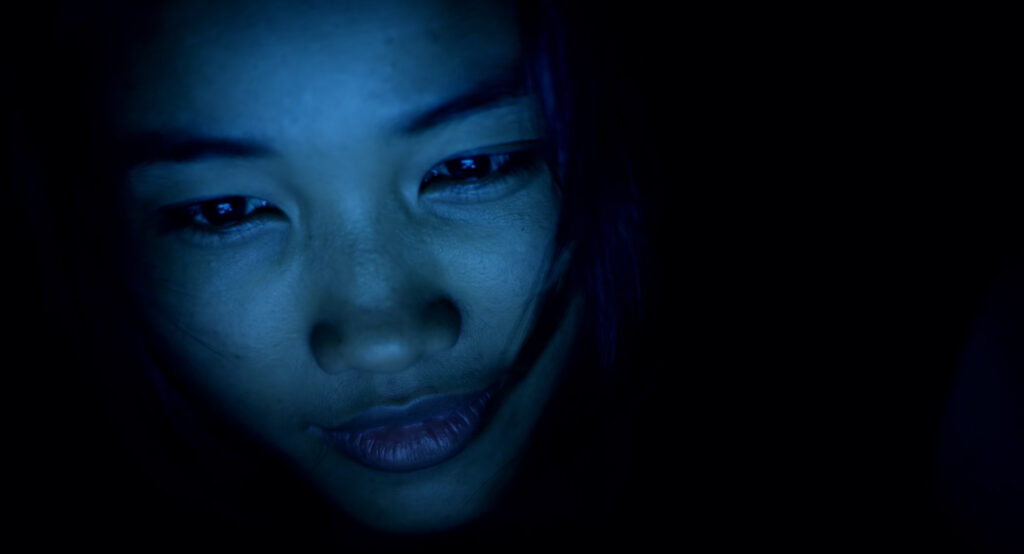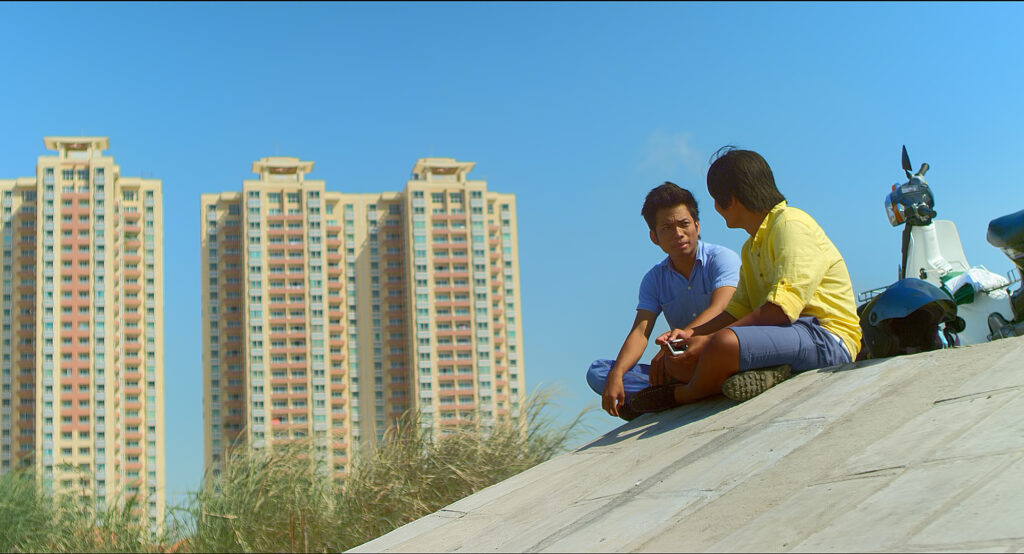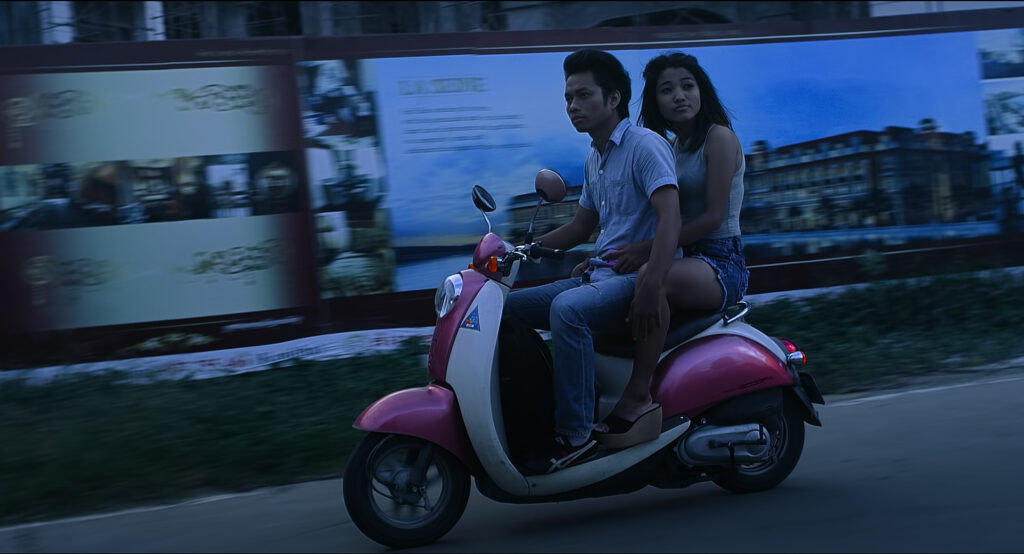The film brilliantly mines the uncertainty and discontent of the present era towards the promise of a future where everything is perfect, easy and worked out. In this way, Chou speaks beyond the specific context of the film towards universal feelings, where the present can feel like a state of becoming towards some future resolution. It’s a mistake that young people can make, to not realise that life is forever unfolding, changing and is charged with a lack of permanence. Kavich’s hesitance in breaking the news to his girlfriend that he will go to live with his mother in California expresses this lack of permanence, as does the ominous shot of a neon sign towards the end of the film which reads “The future of Phnom Penh”.
Coming after Davy Chou’s brilliant look at Cambodia’s past—Golden Slumbers (2011) looks back to the Golden Age of Cambodian cinema in the 1960s and its subsequent destruction by the Khmer Rouge in the 1970s—Cambodia 2099 elegantly shoots forwards to a completely different register. The film acts as a sort of proof of concept for Chou’s subsequent feature film Diamond Island (2016), which again explores the challenges and opportunities faced by new generations, the tension between rural and urban life, as well as Cambodia’s uncertain future. —Herb Shellenberger




